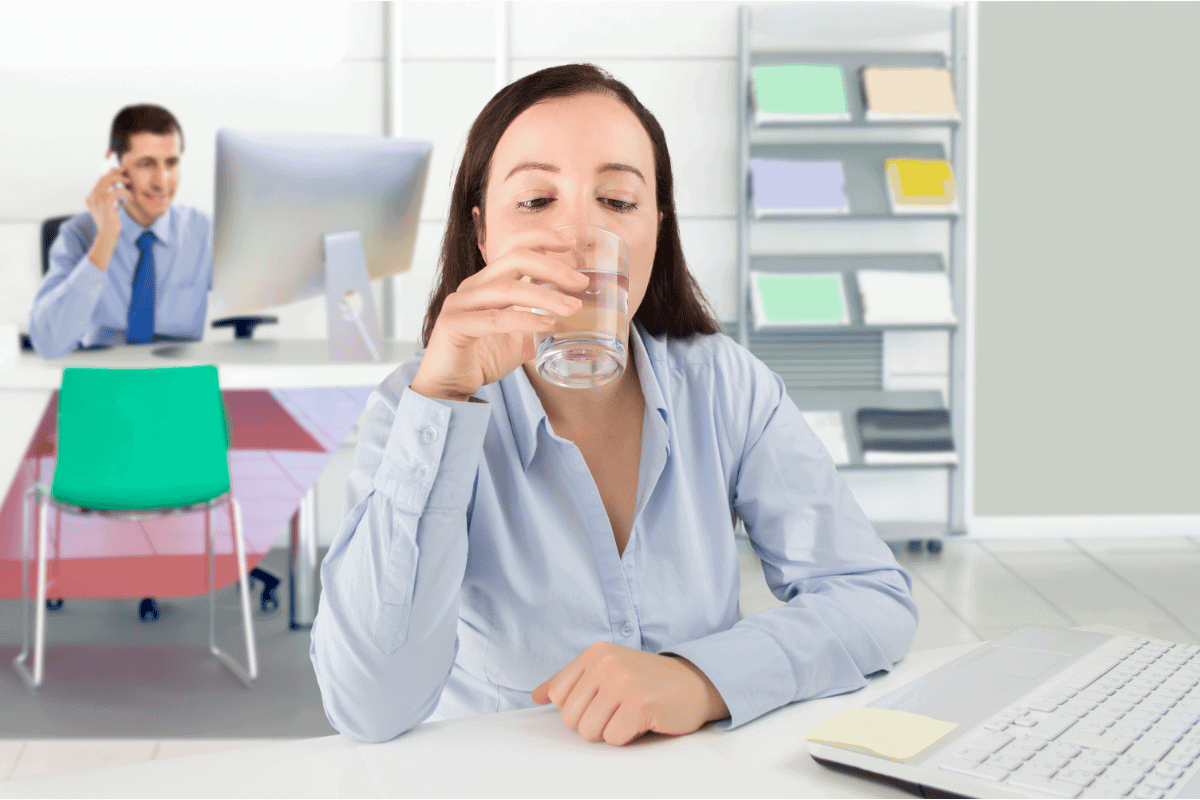Office Tips: What Role Does Hydration Play in Managing Incontinence?
Millions of individuals worldwide suffer from incontinence, a disorder that can negatively impair their quality of life and general well-being. Incontinence is defined as the involuntary loss of bladder or bowel control.
An integrated strategy incorporating behavioral techniques, medicinal therapies, and lifestyle modifications is necessary for optimal incontinence management. A vital but sometimes misinterpreted part of this is maintaining adequate water.
Hydration is crucial for bladder health, preventing UTIs, and lowering irritative symptoms. This is in contrast to the common misconception that reducing fluid consumption will help with incontinence.
In order to help readers better understand how maintaining an ideal fluid balance might assist people in managing their symptoms, this article delves into the complex link between hydration and incontinence control.
1) Understanding Hydration and Its Importance
Maintaining body fluids is essential for several processes, such as controlling body temperature, lubricating joints, and carrying nutrients. Furthermore, having enough water in the body helps the kidneys filter waste from the blood and make urine, which is essential for the urinary system.
Electrolyte equilibrium, cellular health, and the proper operation of the body’s systems are all supported by enough hydration.
Drinking enough water is very important when it comes to incontinence. Diluting urine lowers the danger of irritating the bladder walls, which is why the bladder needs a sufficient supply of fluids.
When there is not enough fluid intake, the pee becomes concentrated, which can irritate the bladder and make incontinence symptoms worse, such as urgency and frequency. Keeping yourself well hydrated can help reduce the frequency of changes and improve overall comfort for those managing their incontinence with products such as superio.
2) The Misconception: Reducing Fluid Intake
The idea that cutting back on fluids drastically will assist in controlling incontinence by lowering pee production is a frequent misunderstanding. This can have a number of negative impacts, even if it makes sense.
Urine might become more concentrated due to dehydration, which can aggravate the bladder and cause more frequent and urgent urination episodes. Furthermore, dehydration can cause constipation, which can increase pressure in the bladder and make incontinence and stress more likely. Therefore, make sure when you limit your water intake to reduce the frequency of peeing, you still are staying hydrated so that your body can function properly.
3) Role of Hydration in Preventing Urinary Tract Infections (UTIs)
UTIs are a frequent consequence of incontinence that can be prevented through sufficient fluid intake. Hydrating the body avoids the presence of germs in the urinary system and hence reduces the incidences of the disease.
This might lead the incontinent episodes to be more frequent with bladder irritation caused by UTIs. Individuals who drink sufficient amount of water can reduce the chances of developing urinary tract infection and manage their incontinence successfully.
4) Optimal Hydration Strategies for Incontinence Management
Hydration for the incontinence must be managed with a balanced approach. To maintain appropriate hydration without aggravating the symptoms of incontinence, try these strategies:
- Consistent Fluid Intake: It is better to drink small amounts of water occasionally instead of consuming large volumes of water at a time. This way you may prevent frequent needs to urinate and maintain constant energy levels.
- Monitor Fluid Types: Alcohol and caffeine should be avoided since they can irritate the bladder increasing the severity of incontinence. Drink a lot of water and other non-alcoholic beverages or other herbal teas without caffeine to stay hydrated.
- Timing of Fluid Intake: Reduce fluids before sleeping in order to avoid frequent urination at night time. But in order to reduce the risk of concentrated urine at night, you should enrich your diet with water during the day
- Dietary Considerations: Eating foods with high water content, such as fruits or vegetables, might also help you remain hydrated during the day. Furthermore, these meals provide essential nutrients that support the bladder health.
5) Hydration and Bladder Training
Training the bladder involves planned voiding and pelvic floor muscle-strengthening exercises. It is a typical behavioral therapy used to manage incontinence. Drinking enough water helps people practice holding their urine longer and filling their bladder to the fullest, which is why it’s so important for bladder training.
6) Recognizing Dehydration and Overhydration
Excessive or inadequate hydration can negatively impact the treatment of incontinence. Therefore, it’s important to maintain a balance. Difficulty breathing, dry tongue, and dark urine are symptoms of dehydration. Conversely, dehydration can cause urine to become copious and dilute vital electrolytes.
To get the ideal balance, keep an eye on the color of your pee—pale yellow denotes enough hydration—and drink fluids consistently.
7) Individualized Hydration Plans
Individual differences exist in their demands for water based on things like age, degree of exercise, and general health. In order to create customized hydration regimens that take into account their unique requirements and symptoms, people with incontinence must collaborate with medical specialists.
Individuals will obtain enough water without their incontinence getting worse, thanks to this customized strategy.
8) Special Considerations for Older Adults
Both incontinence and dehydration pose a significant risk to older people. Dehydration is simpler to achieve as individuals become older since they no longer feel as thirsty. Fluid balance may also be impacted by age-related changes in renal function.
For both incontinence management and general health, it is imperative that older people drink enough water. It can be easier to overcome these difficulties if fluids are readily available and regular fluid consumption is promoted.
Bottomline
Staying hydrated is essential for controlling incontinence as it affects bladder health, reduces the risk of UTIs, and enhances overall comfort.
Effective treatment necessitates debunking the fallacy that lowering fluid consumption can resolve incontinence.
People with incontinence can enhance their quality of life and more effectively manage their symptoms by realizing the significance of maintaining fluid balance and adopting techniques to preserve it.
A more successful and long-lasting approach to managing incontinence can be achieved by working with healthcare providers to develop customized hydration regimens that cater to each person’s specific needs.







